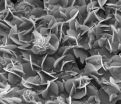(Press-News.org) If wine leaves a bitter, cotton-like coating on the tongue, neither the sense of taste nor the sense of smell is responsible. The traditional oak barrel character, also called barrique character, is perceived via the trigeminal nerve, which is responsible for, among other things, pain and temperature perception. This is reported in the journal "Chemical Senses" by a research team headed by Prof Dr Dr Dr Hanns Hatt from the Faculty of Biology and Biotechnology at the Ruhr-Universität.
Patients with severed taste nerve do still taste barrique flavour
In collaboration with the RUB's ENT clinic at St. Elisabeth-Hospital, Dr Nicole Schöbel from the Department of Cell Physiology examined patients with severed taste nerves who were unable to taste the five flavours sweet, sour, bitter, salty and umami. They did, however, feel the barrique flavour, also called astringency, on their tongue. These results were confirmed by experiments conducted at the "Smell and Taste Center Florida" in Gainesville: subjects whose taste nerve was temporarily anaesthetised perceived the barrique flavour nevertheless. Once the trigeminal nerve was likewise switched off, however, the barrique flavour disappeared.
Gallic acids responsible for astringency
The cell physiologists from Bochum were the first ones to decode which exact structural features a material must possess to trigger the barrique flavour. The crucial element is a gallic acid group that consists of one carbon ring, namely a phenol ring, with three adjacent OH groups. The more gallic acid groups a substance contains, the stronger the astringency. "Gallic acids occur in smaller quantities in the seeds of grapes and in large complexes in oak barrels," explains Hanns Hatt. "In red wine, many of those molecules bond together and have an accordingly strong effect." The RUB team also discovered that larger complexes affect nerve cells more strongly, too, and result in a clearer barrique flavour by humans.
Without oak barrel and woodchips: barrique flavour made possible through chemical additives alone
Wine gets its barrique character not only through maturing in an oak barrel, but also through the addition of woodchips or wood flour. According to Hanns Hatt, this process has become even simpler: "Our research has made it possible to add the chemical substance that generates the barrique flavour directly to a wine. Such additives are approved for use in the EU and the USA."
Barrique substances activate cells in the trigeminal nerve
The RUB team used cell cultures to study the effect of barrique substances on cells from the trigeminal nerve of mice. In collaboration with the Chair of Food Chemistry at the TU of Munich, the researchers isolated substances triggering astringency from Bordeaux wine. The barrique substances excited the trigeminal cells; they activated a signalling pathway also known from olfactory cells, which runs via a G protein-coupled receptor. "We don't know yet which receptor exactly is responsible for the barrique flavour, but we are attempting to identify it," says Prof Hanns Hatt.
INFORMATION:
Bibliographic record
N. Schöbel et al. (2014): Astringency is a trigeminal sensation that involves the activation of G protein-coupled signaling by phenolic compounds, Chemical Senses, DOI: 10.1093/chemse/bju014
Further information
Prof Dr Dr Dr Hanns Hatt, Department of Cell Physiology, Faculty of Biology and Biotechnology at the Ruhr-Universität, 44780 Bochum, Germany, phone: +49/234/32-24586, email: Hanns.Hatt@rub.de
Editor: Dr Julia Weiler
When wine hits the right nerve
RUB researchers decode mechanism for appreciation of the barrique character
2014-05-05
ELSE PRESS RELEASES FROM THIS DATE:
Caring for horses eases symptoms of dementia
2014-05-05
COLUMBUS, Ohio—In the first study of its kind, researchers have determined that spending time with horses eases symptoms of Alzheimer's dementia.
A collaboration between The Ohio State University, an equine therapy center and an adult daycare center found that people with Alzheimer's were able to safely groom, feed and walk horses under supervision—and the experience buoyed their mood and made them less likely to resist care or become upset later in the day.
The small pilot study, which appears in the journal Anthrozoös, suggests that equine therapy—a treatment used ...
Dementia diagnosis twice as likely if older adult has schizophrenia; cancer less likely
2014-05-05
INDIANAPOLIS -- Researchers from Regenstrief Institute and Indiana University who followed over 30,000 older adults for a decade have found the rate of dementia diagnosis for patients with schizophrenia to be twice as high as for patients without this chronic, severe and disabling brain disorder.
"Individuals with serious mental illnesses including schizophrenia appear to be living longer than earlier estimates suggested," said Hugh Hendrie, M.B., Ch.B., D.Sc., the geriatric psychiatrist who led the study. Dr. Hendrie is a Regenstrief Institute investigator, IU Center ...
Molecular tumor board helps in advanced cancer cases
2014-05-05
With accelerating development of personalized cancer treatments matched to a patient's DNA sequencing, proponents say frontline physicians increasingly need help to maneuver through the complex genomic landscape to find the most effective, individualized therapy.
In a paper published in the May 5 online issue of The Oncologist, researchers at the University of California, San Diego School of Medicine and Moores Cancer Center detail their experience evaluating 34 patients between December 2012 and June 2013 using a molecular tumor board – a new type of advisory group comprised ...
Researchers present findings on promising biomarker for esophageal cancer
2014-05-05
CLEVELAND – A new biomarker for esophageal cancer shows promise in improving screening for this deadly disease and its precursor, Barrett's esophagus.
Amitabh Chak, MD, of University Hospitals Case Medical Center's Seidman Cancer Center and Case Western Reserve University School of Medicine, presented findings today at Digestive Disease Week in Chicago in a research forum titled "Aberrant Vimentin Methylation in Esophageal Brushings: A Biomarker for Detecting Barrett's Esophagus and Esophageal Adenocarcinoma" (embargoed May 5, 9:15 am CT).
Dr. Chak and a research team ...
Study: Game developers say success hinges on more than just programming skills
2014-05-05
Aspiring game developers may want to bone up on their interpersonal skills. A forthcoming study from North Carolina State University and Microsoft Research finds that game developers need a suite of non-programming skills – including communication skills – that are considered less important in other fields of software development.
"We wanted to evaluate which skills are important to game developers versus other fields of software development," says Dr. Emerson Murphy-Hill, an assistant professor of computer science at NC State and lead author of a paper on the work. "These ...
High-strength materials from the pressure cooker
2014-05-05
This news release is available in German. The earth's crust works like a pressure cooker. Minerals typically do not form under standard conditions, but at high temperatures and pressures. However, an environment of extreme heat and pressure has been considered to be absolutely unsuitable for organic molecules. Scientists at Vienna University of Technology found out that under such seemingly hostile conditions, organic materials with remarkable material properties can be synthesized – for instance Kevlar, an extremely versatile high-performance material. The new technique ...
How does stress increase your risk for stroke and heart attack?
2014-05-05
Philadelphia, PA, May 5, 2014 – Scientists have shown that anger, anxiety, and depression not only affect the functioning of the heart, but also increase the risk for heart disease.
Stroke and heart attacks are the end products of progressive damage to blood vessels supplying the heart and brain, a process called atherosclerosis. Atherosclerosis progresses when there are high levels of chemicals in the body called pro-inflammatory cytokines.
It is thought that persisting stress increases the risk for atherosclerosis and cardiovascular disease by evoking negative emotions ...
Middle school students introduced to arboriculture topic
2014-05-05
GAINESVILLE, FL – A potential new sixth grade curriculum augmentation has been introduced to teach youth about an important topic: how to recognize structural defects in trees. "This highly important topic is rarely presented in middle or even high school," said author Laura Sanagorski. Sanagorski and coauthor George Fitzpatrick reported on their introduction to the new subject matter--which they tested in sixth grade science classes at three Florida middle schools--in HortTechnology.
Sanagorski and Fitzpatrick explained that trees in urban areas are more likely to develop ...
Younger adults benefit from gardening's moderate- to high-intensity activities
2014-05-05
SOUTH KOREA – People throughout the world enjoy gardening. The popular pastime can not only enhance home and community landscapes and provide low-cost food sources, the level of physical activity required also offers a multitude of health benefits. Studies have confirmed that engaging in gardening can lower cholesterol and blood pressure, and increase psychological well-being. The authors of a new study say that, although many studies have focused on the health benefits of gardening for older adults, research on different age groups is limited. A new study suggests that ...
Economics of high tunnels examined in southwestern United States
2014-05-05
LAS CRUCES, NM – Used throughout the world in horticulture and agriculture production, high tunnels are less complex and less expensive versions of greenhouses. The structures' passive heating and cooling capabilities can offer growers a cost-effective way to extend the growing season for high-value crops such as fruits, vegetables, and cut flowers. High tunnels can provide protection against some insects, early freezes, hail, and other weather events. A new study recommends the best high tunnel designs for growing lettuce and spinach during the winter season in the southwestern ...
LAST 30 PRESS RELEASES:
A Pitt-Johnstown professor found syntax in the warbling duets of wild parrots
Cleaner solar manufacturing could cut global emissions by eight billion tonnes
Safety and efficacy of stereoelectroencephalography-guided resection and responsive neurostimulation in drug-resistant temporal lobe epilepsy
Assessing safety and gender-based variations in cardiac pacemakers and related devices
New study reveals how a key receptor tells apart two nearly identical drug molecules
Parkinson’s disease triggers a hidden shift in how the body produces energy
Eleven genetic variants affect gut microbiome
Study creates most precise map yet of agricultural emissions, charts path to reduce hotspots
When heat flows like water
Study confirms Arctic peatlands are expanding
KRICT develops microfluidic chip for one-step detection of PFAs and other pollutants
How much can an autonomous robotic arm feel like part of the body
Cell and gene therapy across 35 years
Rapid microwave method creates high performance carbon material for carbon dioxide capture
New fluorescent strategy could unlock the hidden life cycle of microplastics inside living organisms
HKUST develops novel calcium-ion battery technology enhancing energy storage efficiency and sustainability
High-risk pregnancy specialists present research on AI models that could predict pregnancy complications
Academic pressure linked to increased risk of depression risk in teens
Beyond the Fitbit: Why your next health tracker might be a button on your shirt
UCSB scientists bottle the sun with liquid battery
Lung cancer drug offers a surprising new treatment against ovarian cancer
When consent meets reality: How young men navigate intimacy
Siemens Healthineers and Mayo Clinic expand strategic collaboration to enhance patient care through advanced technology
Physicists develop new protocol for building photonic graph states
OHSU-led research initiative examines supervised psilocybin
New review identifies pathways for managing PFAS waste in semiconductor manufacturing
New research finds state-level abortion restrictions associated with increased maternal deaths
New study assesses potential dust control options for Great Salt Lake
Science policy education should start on campus
Look again! Those wrinkly rocks may actually be a fossilized microbial community
[Press-News.org] When wine hits the right nerveRUB researchers decode mechanism for appreciation of the barrique character



